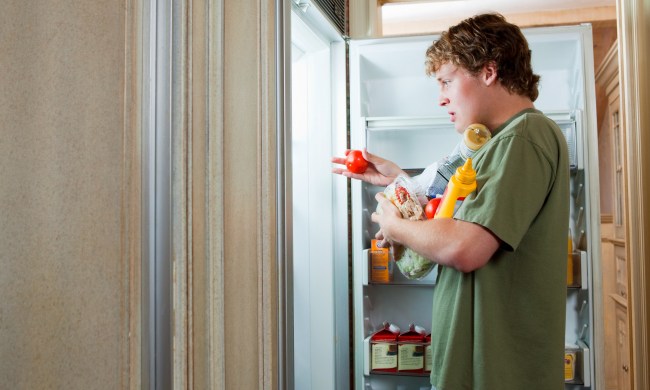How much time kids spend in front of a screen is always a hot-button topic for parents. Constantly questioning how much is too much, how young is too young for handing over a tablet, and whether there should there be limits on devices are a few worries a parent has to think of. Although parents can monitor screen time more easily when their children are younger, by the time kids become teenagers, parents feel a lot less in control of limits, and the average screen time for teens could become a battle.
So how much is too much screen time for teens? Parents may be surprised to learn just how long the average teen is spending in front of a screen. There are ways to help manage teen screen time without making kids feel like it’s a negative thing, especially if you sit them down and explain some of the effects staring at a screen has on their productivity and development. We’ll break down the teen screen time battle to arm parents with the knowledge needed to set boundaries at home.

Average screen time for teens
According to a study conducted by Jama Pediatrics, teens are spending on average almost 8 hours in front of a screen every day. This isn’t taking into account online learning, but instead includes time gaming, texting, scrolling through social media feeds, video chatting, browsing the internet, and watching or streaming movies, videos, or television shows. It’s not totally surprising given how much teens turned to getting online during the pandemic to remain somewhat connected to their peers through their screens, but it is still a worrying number.
A 2019 report by Common Sense Media found teens were spending more than 7 hours on screens daily, often using their devices to seek information. “It gives young people the chance to look for resources on information that they’re grappling with and to use apps that help them meditate or sleep, to connect to peers who might be going through similar challenges that they’re going through, to offer support to other people,” co-author of the report Vicky Rideout told CNN. This report also noted many teens would have their phones streaming a show or movie while doing something else, or even have two different devices online at the same time, effectively doubling their reported screen time.
It’s easy to look at those numbers and be worried your teenager is spending the majority of their day in front of a screen, but there are many factors to take into consideration. Lots of teens use their phones, laptops, and other devices not only for entertainment purposes, but for other reasons, too.
More screen time could lead to problems for teens
However, a study on brain development comparing times on screens from participants from 2016 to 2020 found a link between higher screen times associated with poorer mental health and more stress. “As screen time increased, so did adolescents’ worry and stress, while their coping abilities declined,” the study’s lead author, Dr. Jason Nagata told USA Today. “Though social media and video chat can foster social connection and support, we found that most of the adolescents’ screen use during the pandemic didn’t serve this purpose,” he said.
A related study, also led by Dr. Nagata, found a link between excessive screen time and eating disorders. “Teens that spend a lot of time sedentary in front of a screen are more likely to overeat,” Nagata said.

Symptoms of too much screen time
Worried your teen is spending too much time in front of a screen, but not sure what to look for? Although screens help keep your teen connected to their friends and family, too much leads to a variety of issues. Dr. Kara Hartl explains a few of the mental and physical symptoms your teen may exhibit due to too much screen time.
Parents should look out for these behaviors
- Poor sleep
- Low energy levels
- Reduced attention span
- Mood changes
- Mental fog
- Short-term vision problems
- Poor social skills
- Weight gain
There are times when your teen will need to be on a screen for extended periods of time, especially when school, work, or a job dictates it. If you’re concerned about your teenager and their screen time, speak to them openly and honestly and reach out to your family doctor if you’re seeing any physical or mental changes you think may be a result of too much time on screens.

How parents can limit screen time
Device rules to help reign in screen time
- No screens at meal times
- No screens during family time
- Screens get handed in at bedtime
- Screens don’t get handed back in the morning until after a certain time
Let’s face it: It can be a lot easier to limit screen time when your children are younger. Once they become teenagers, it seems close to impossible to regulate how much time they spend on their screens. Screens were one of the things that allowed kids to stay connected to their peers throughout the pandemic and those habits have stuck for many kids these years later.
There are benefits to limiting screen time, even with teenagers who don’t require parents to implement strict rules. Some experts suggest setting guidelines around when screens aren’t welcome, such as at mealtimes or when dining out. Limit screens right before bed or delay how early in the day teens reach for their phones.

Help your teen find the balance
The AAP warns parents screen time shouldn’t come at the expense of other interests, so encourage your teens to make time in their day for non-screen-related things. Have your child involved in activities through school, the community center, or the library to not only keep them off of screens, but to show them there is life outside of an electronic device.
Parents, it wouldn’t hurt to do some activities with your teen, like volunteering together or taking classes at the library. You’ll create memories with your child, be able to bond with them, and you can show them they aren’t the only ones who can take a break from a screen.
Pay attention to quality over quantity
Experts suggest it’s more important for parents to monitor what their child is watching more than how much of it they watch. We know privacy is a huge part in the relationship between a parent and a teen, but that doesn’t mean the child gets to do whatever they want. Check what social media apps are on the phone and utilize parental controls if the device or app allows.
If you don’t want to allow social media on your teen’s phone until a certain age, have the conversation before you give them a cell phone. Look through the available apps together and find ones you would be comfortable with your child having and using.
The internet and online communities have been a saving grace for many teens, helping them feel connected to their friends and finding their own community of like-minded individuals. Limiting screen time for teens can be hard, but teaching them how to be online safely is key, and when parents model healthy screen usage themselves, it makes it easier for everyone to put the device down and connect as a family.




